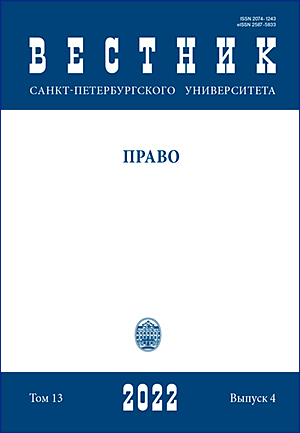New models of taxation of income of international groups of companies: Analysis and prospects of use in Russia
DOI:
https://doi.org/10.21638/spbu14.2022.411Abstract
The article discusses the initiatives of the Organization for Economic Cooperation and Development (OECD) in the field of taxation of international groups of companies in the era of the digital economy. Methodological approaches to taxation of the digital economy are considered, relevant legal mechanisms for taking into account the interests of the fiscal of the Russian state in the conditions of digital transformation are determined. The analysis of new OECD tax projects in the context of the application of tax legislation and double tax treaties, in particular, the rules for determining the existence of a permanent establishment and calculating the tax base attributed to a permanent establishment, as well as the application of transfer pricing rules, is carried out. In addition, the analysis of these OECD documents from the point of view of the potential impact on the Russian fiscal base was carried out. The methodological basis of the research consists of both general scientific methods (dialectical materialistic, systemic, induction, deduction, analysis, synthesis) and interdisciplinary, as well as legal research methods. The study is based on a comparative legal method that allows comparing similar legal problems existing in legislation and international treaties, as well as identifying optimal ways to resolve them. The foundations of tax systems laid down in the 1920s traditionally took into account the principles of source of income and residency. In the new world of globalization and the digital economy, these principles become significant obstacles to international trade and at the same time are involved by economic entities in tax competition or tax avoidance, that is, in their interests to obtain tax benefits.
Keywords:
corporate taxation, international taxation, digital transformation, international group of companies, permanent establishment, transfer pricing
Downloads
References
Downloads
Published
How to Cite
Issue
Section
License
Articles of "Vestnik of Saint Petersburg University. Law" are open access distributed under the terms of the License Agreement with Saint Petersburg State University, which permits to the authors unrestricted distribution and self-archiving free of charge.






